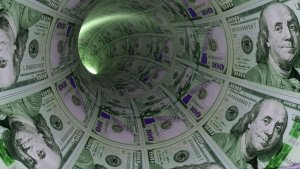In the rooms of the Washington Duke Inn sat some 20 economists, philosophers, historians and methodologists, discussing “herding behavior” in the economics profession. I have been to several of similar events and they are spottingly attended, with folks coming in and out of the room, physically and mentally. Not so this time.
The experience was unexpectedly intense. All chairs were taken. Everyone stayed to the end. All were on target, despite the sunshine calling out to the golf course across the windows. (Perhaps, not many golfers in the room.) In two packed days, ground was covered, although no conclusion was sought or reached. Each participant riffed on the mandated topic of “herding” from their own disciplinary, personal vantage point. And there was not much space to discuss what fabric to weave from these threads.
Sitting on the sideline without having to present, it seemed to me that we know well about the powers of reproduction and emulation. We know the sociology of graduate schools and the economists’ job market and we learn more and more about the structures that hold apart the elite of the American economics profession. We know of how fads and trends, and toolkits and themes spread across the professional literature. What still don’t know much about is how the economists’ wares are bought and sold.
On itself there is nothing really troublesome in economists sheepishly grazing the fields of orthodoxy. The trouble is that, like Monty Python explained many years ago, an ambitious sheep is that most dangerous of animals.
The problem that preoccupies the convenors of the workshop is to deconstruct orthodoxy and obtain a more open, pluralistic field of discourse. That’s a very excellent goal. My puzzle is how do economists create research futures that are so convincing to their clients? To secure patronage, economists, like any other scientists, need to convince that their wares produce the intended outcomes: their metrics can photograph economic decision in motion, their theories depict the structures of a healthy economy, their policy blueprints yield progress and social justice in one stroke. Like Ponzi, are they making promises they can’t keep, for the sake of staying in business?
Herds of economists bred for the service of other economists, is a local and professional perversion, but a herd that is sheperd by the anxieties and aspirations of their patrons and their polities is another, more scary matter.



